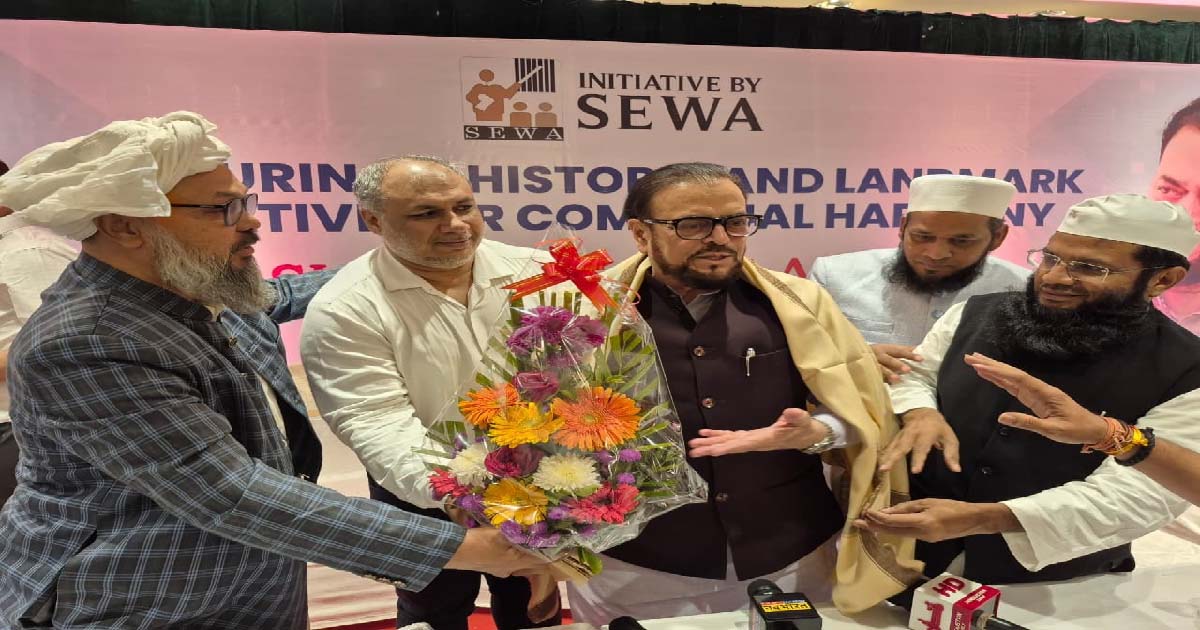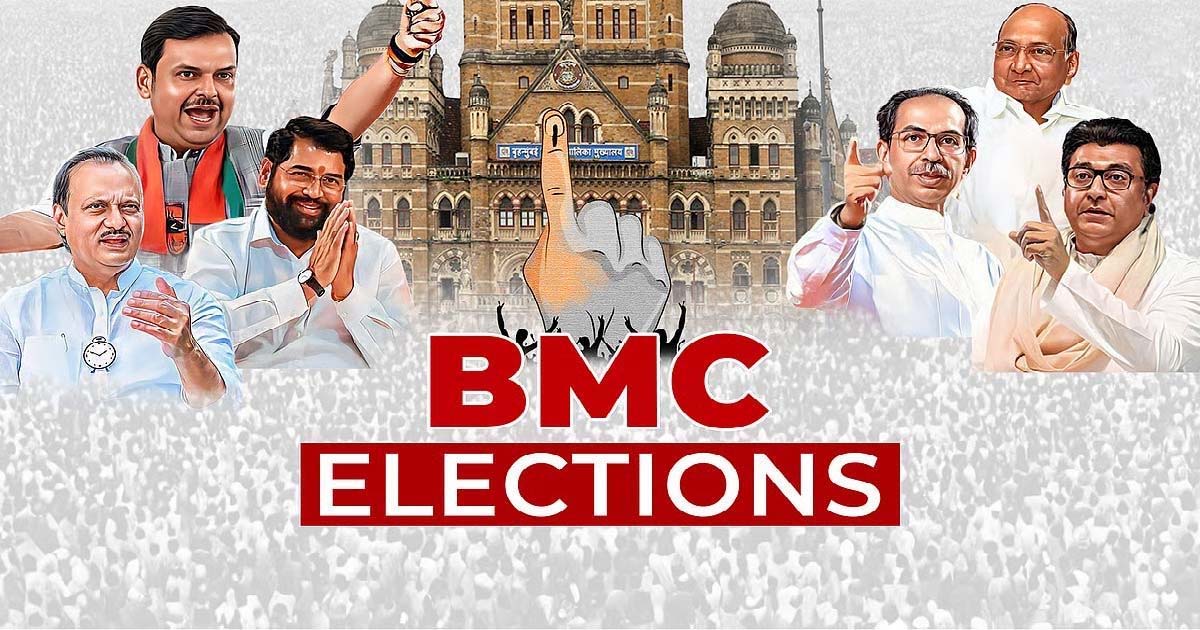Maharashtra
Bombay HC Issues Notice To State On Plea For Enforcing CPCB’s Ban On Plaster Of Paris Idols

Mumbai: The Bombay High Court on Wednesday issued notice to the State government on a plea seeking implementation of the revised guidelines by Central Pollution Control Board (CPCB) which mandates a complete ban on the use of Plaster of Paris (PoP) for religious idols to be immersed in water.
The CPCB had issued “Revised Guidelines for Idol Immersion” on May 12, 2020 mandating the complete ban on use of PoP “due to the extreme and irreparable water pollution caused by the immersion of these idols in natural water bodies”.
A bench of Chief Justice DK Upadhyaya and Justice Amit Borkar issued the notice while hearing a public interest litigation (PIL) petition, filed by three citizens and nine clay-based and small scale craftsman of idols, contending that the actions undertaken by the Respondent Authorities to enforce the Guidelines are “farcical measures designed only to pay lip-service to the provisions of the Guidelines”.
Petitioners’ advocate Ronita Bhattacharya submitted that despite the CPCB ban in 2020, which was to come into effect in 2021, the state is dilly dallying in its implementation to appease manufacturers of PoP idols. Even the Supreme Court had categorically said that manufacture of PoP idols and its immersion in water cannot be permitted.
“Despite this, it is not being effectively implemented in Maharashtra. The ban should be made mandatory under the Water (Prevention and Control of Pollution) Act, which invites penal provisions if not followed,” Bhattacharya said.
The Act requires registration of non-PoP idol makers and the list has to be published so people are aware of the same. However, no steps have been taken in the regard. The CPCB recommended using eco-friendly idols made of natural clay and biodegradable materials to mitigate these harms. Hence, there is a need to publish a list of idol makers using eco-friendly material.
Bhattacharya pointed out to the court that the Nagpur bench of the HC had taken suo motu (on its own) cognisance of the issue two years back and had issued several directions for implementation of the ban, but directions have not been compiled with.
The Nagpur bench had formed a technical committee to oversee the implementation of the ban. However, the committee has taken upon itself to examine the manner in which the pollution caused by the PoP idols can be mitigated. Also, the minutes of the meeting conducted by the committee reflects that the committee contemplated getting experts’ opinions on the validity of the CPCB ban. “This is ridiculous, as there can be no PoP at all,” Bhattacharya added.
The plea seeks formation of a district level committees for regular checks to ensure effective implementation of the revised CPCB guidelines. Also, action should be taken against idol makers who continue using PoP.
Advocate Tushad Kakalia, appearing for NGO Vanashakti, pointed out that the high court had last year issued a series of directions to ensure no PoP idols were immersed in the natural lake inside the suburban Aarey Milk Colony, which is an eco-sensitive zone.
The court had expanded the scope of the petition to ensure adherence to CPCB guidelines. The NGO has again moved an application for continuation of the directions during the coming Ganesh festival.
The HC has clubbed both the PILs and kept them for hearing in August.
Why idol makers continue using PoP –
PoP for the making of idols is commercially more viable than using clay.
PoP is a cheap material that is easy to use, and keeps the cost of operations low and the margin of profits on making idols high.
Clay suitable for idols is not easy to obtain, is a time consuming material to mould and perfect, and requires a higher degree of skill to manoeuvre.
Disadvantages of PoP –
Has several harmful effects on the environment Including water pollution, soil pollution, damage to the marine ecosystem, waste generation, and environmental degradation.
PoP idols do not dissolve easily in water, leading to the accumulation of non-biodegradable materials and disrupting the aquatic ecosystem.
When immersed in soil, PoP idols release harmful chemicals and heavy metals, contaminating the soil and affecting its fertility.
PoP idols contain chemicals such as Gypsum, Sulphur, Phosphorus, and Magnesium. Chemical paints used for colouring idols may contain Mercury, Cadmium, Arsenic, Lead, and Carbon, which are harmful to the nervous system and kidneys.
These heavy chemicals have bio-accumulative properties and can enter the food cycle through aquatic creatures like fish, ultimately affecting human consumption.
Non-biodegradable materials like plastics and thermocol used in idol decoration pose a threat to terrestrial and aquatic environments when immersed in water bodies.
Maharashtra
Abu Asim Azmi praised for introducing a bill against hate speeches and hate crimes, Muslim organizations called Abu Asim Azmi’s step commendable.

Mumbai: Leading Mumbai NGOs like OZ Seva Trust, Minara Masjid Trust, All India Ulema Board, Malik Liaquat Hussain Trust, National Uni-Ayush Activist Trust, Mumbai Central Association etc. today felicitated SP State President Abu Asim Azmi at Islam Gymkhana and appreciated his efforts to maintain unity and brotherhood in the society by respecting all religions in the Maharashtra Assembly. Azmi had introduced a bill in the Nagpur Assembly to enforce strict laws against religious hatred, blasphemy, prophets, religious leaders, and religious places, and hate speeches and hate crimes.
The event was organised at Islam Gymkhana, Mumbai. Addressing the event, Abu Asim Azmi said that nowadays hatred is being spread among the brothers by making objectionable or insulting inflammatory speeches against any religion, religious leader, religious book, religious place, Prophet Muhammad (PBUH). This poses a threat to peace and order. Therefore, we have presented this bill in the Legislative Assembly against those who insult any religion, religious leader, religious book, religious place, or Prophet. This bill proposes a penalty of imprisonment for up to 10 years and a fine of up to Rs 2 lakh for those who make slanderous statements about any religion, religious leader, religious book, or religious place or spread it on social media. Such a punishment will curb hate speech and hate crimes. MLA Raees Shaikh, State Working President Yousuf Abrani, Chief General Secretary Meeraj Siddiqui and Advocate Rizwan Merchant, Maulana Ijaz Kashmiri, Nizamuddin Rain, Naseem Siddiqui, Sarfaraz Arjo were present at the event.
Maharashtra
A split in Maha Vikas Aghadi before BMC elections, Congress’s slogan is ‘akela Chalo’

The trumpet of the municipal elections has sounded in the state. Voting for 29 municipal corporations will be held on January 15, while the counting of votes will be held on January 16 and the results will be announced. In this election, everyone’s attention will be focused on the Mumbai Municipal Corporation elections. The Shiv Sena Thackeray group will try to retain power in the Municipal Corporation. While Eknath Shinde’s Shiv Sena and BJP will try to rule the BMC in Mumbai. Negotiations on seat sharing are ongoing in Mahayoti, but the electoral understanding has not been completed yet. However, a major rift has arisen in the Maha Vikas Aghadi before the Mumbai Municipal Corporation elections. The Congress has announced to fight the Mumbai Municipal Corporation elections on its own. Due to which the competition in this election has intensified further.
Congress will fight the elections alone
Congress has announced to fight the Mumbai Municipal Corporation elections on its own. Congress’ Maharashtra in-charge Ramesh Chinnathala is currently on a visit to Maharashtra. After a meeting held in Mumbai today, Ramesh Chinnathala has said that he will fight the upcoming elections on his own. He said that there is a lot of corruption in Mumbai. That is why the Congress has decided to fight the elections alone. We have decided to fight against the BJP and the Shiv Sena Thackeray group. True patriots and secular people should support us in this fight. After coming to power, we will resolve the issues of the Mumbai Municipal Corporation in a good way. Therefore, I appeal to the voters to support us and we will develop Mumbai.
Mumbai Municipal Corporation Elections
The State Election Commission had announced the Mumbai Municipal Corporation elections in a press conference on December 15. According to this announcement, candidates will be able to file their applications from December 23 to December 30, 2025. The Election Commission will scrutinize the applications on December 31. Candidates can withdraw their applications till January 2, 2026. Voting for the Mumbai Municipal Corporation elections will be held on January 5. The voting will be held on January 16, 2026 and the results will be declared on the same day.
Maharashtra
After Babri, it’s Kashi Mathura’s turn. Baba Bageshwar Dham’s provocation in Mumbai.

Mumbai: After the Babri Masjid, now it is Kashi Mathura’s turn, the slogan and provocation has been given by Dhirendra Shastri Bageshwar Dham Baba here in Mumbai. While answering the question of journalists in Andheri, Bageshwar Dham said that the temple is ours and we cannot give it up. When Baba was asked that the dispute had ended after the Babri Masjid, then why is the process of finding temples in mosques going on, to which he said that there are temples in many places and the dispute here is old. On Hindu Rashtra, Bageshwar Dham made it clear that there is also room for Muslims in Hindu Rashtra, his aim is to strengthen Sanatan, while a pilgrimage for Hindu Rashtra will start in Maharashtra to promote Hindutva. He said that it is wrong to declare India a secular country because India has never been secular. He said that there is a need for brotherhood and unity in this country and for that he goes on pilgrimage. Baba, while spewing venom, said that if efforts are not made for Hindu Rashtra and Hindus are not united, then the time is not far when the invasion of India will take place. He said that highly educated doctors in the country are becoming terrorists. If there is a Hindu Rashtra, then a Muslim youth will become Abdul Kalam. Will the mayor of Mumbai be a Muslim or a Hindu? On this, Bageshwar Dham said that he is away from politics, so a candidate should be selected who is useful for the people.
-

 Crime3 years ago
Crime3 years agoClass 10 student jumps to death in Jaipur
-

 Maharashtra1 year ago
Maharashtra1 year agoMumbai Local Train Update: Central Railway’s New Timetable Comes Into Effect; Check Full List Of Revised Timings & Stations
-

 Maharashtra1 year ago
Maharashtra1 year agoMumbai To Go Toll-Free Tonight! Maharashtra Govt Announces Complete Toll Waiver For Light Motor Vehicles At All 5 Entry Points Of City
-

 Maharashtra1 year ago
Maharashtra1 year agoFalse photo of Imtiaz Jaleel’s rally, exposing the fooling conspiracy
-

 National News1 year ago
National News1 year agoMinistry of Railways rolls out Special Drive 4.0 with focus on digitisation, cleanliness, inclusiveness and grievance redressal
-

 Maharashtra1 year ago
Maharashtra1 year agoMaharashtra Elections 2024: Mumbai Metro & BEST Services Extended Till Midnight On Voting Day
-

 National News1 year ago
National News1 year agoJ&K: 4 Jawans Killed, 28 Injured After Bus Carrying BSF Personnel For Poll Duty Falls Into Gorge In Budgam; Terrifying Visuals Surface
-

 Crime1 year ago
Crime1 year agoBaba Siddique Murder: Mumbai Police Unable To Get Lawrence Bishnoi Custody Due To Home Ministry Order, Says Report












